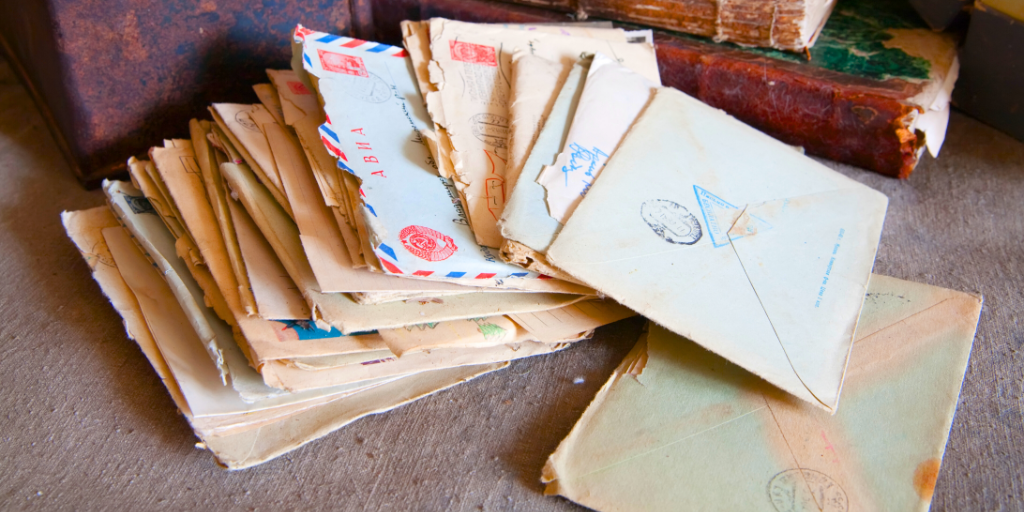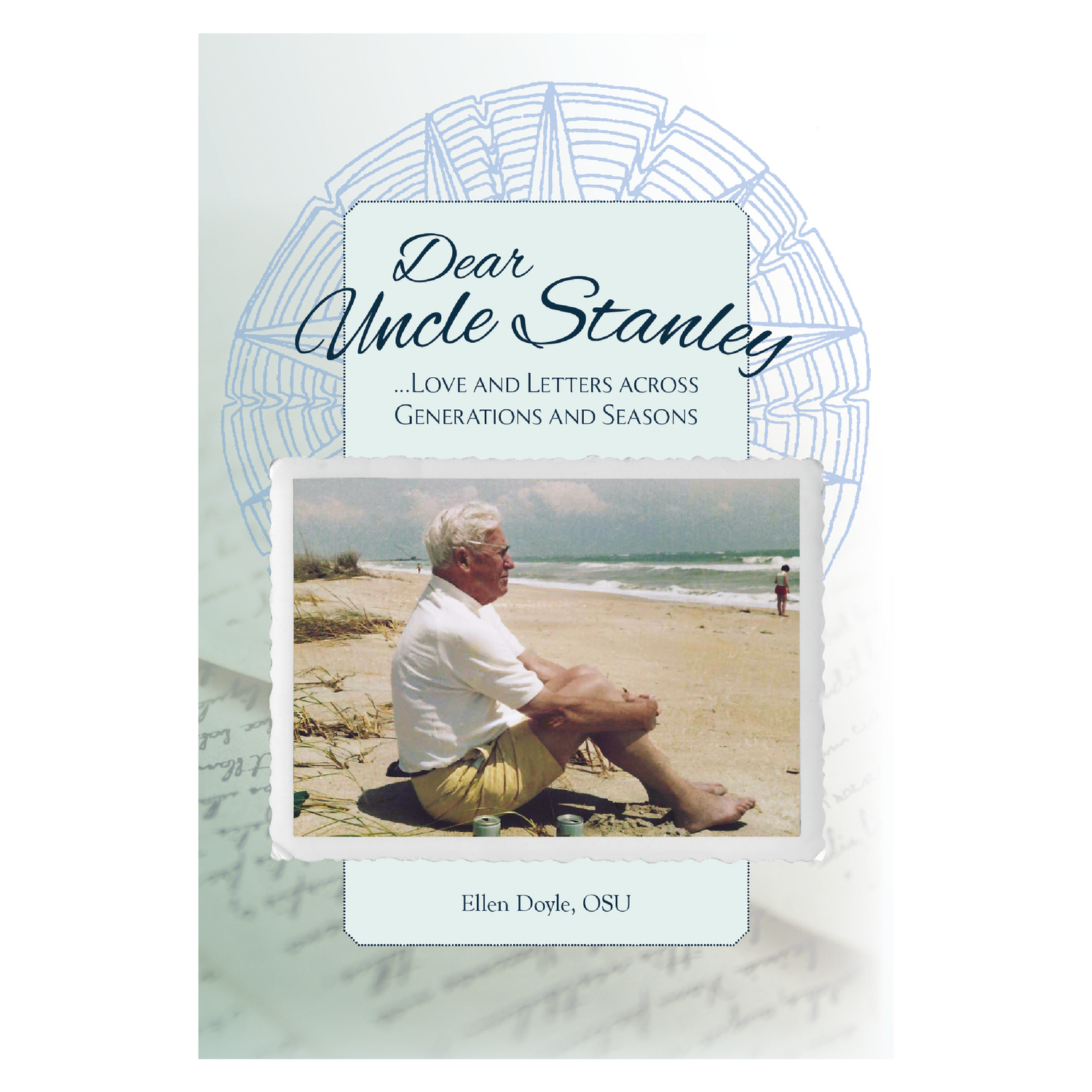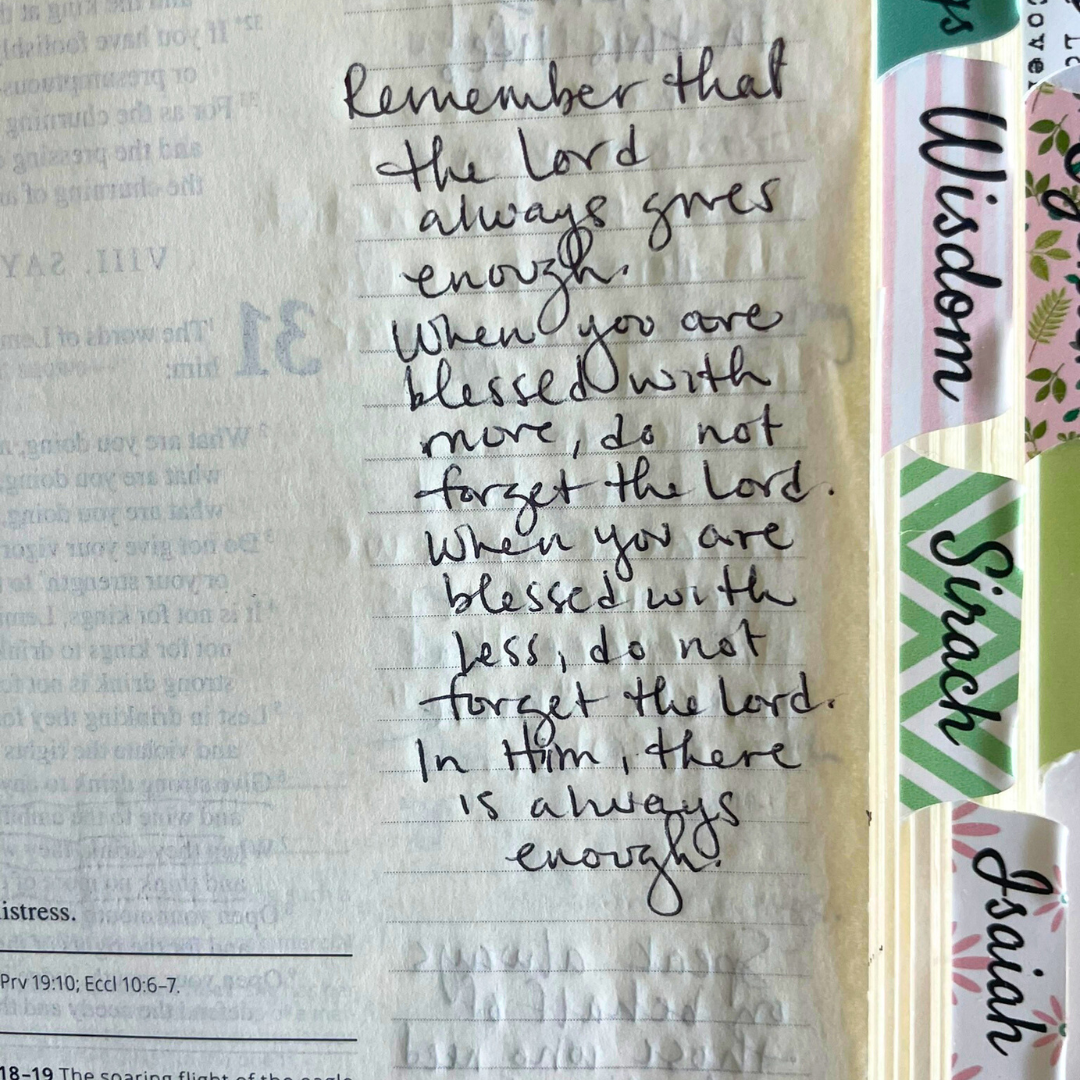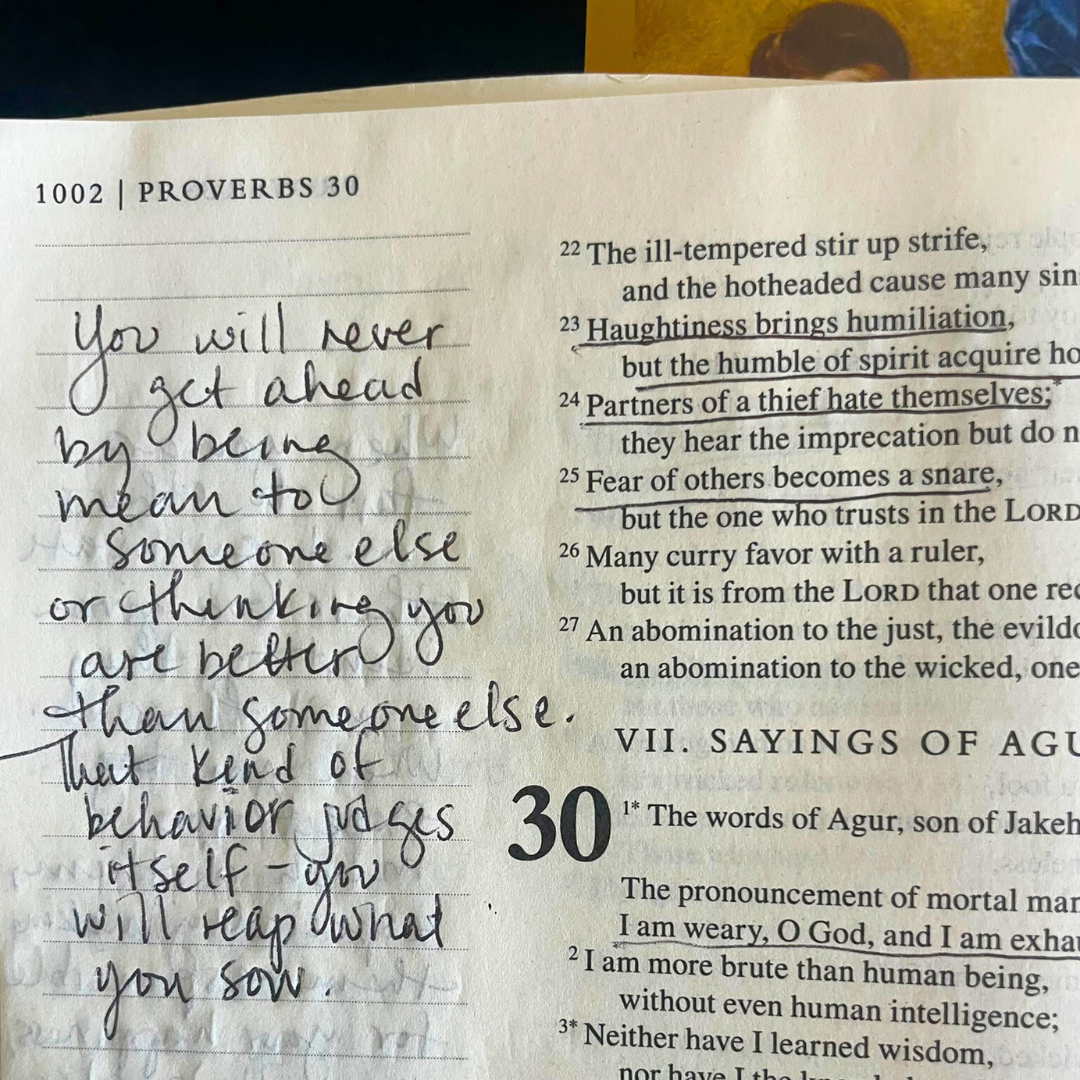
Not the letter-writing type? Nicole Berlucchi suggests a different method of sharing your deepest thoughts with future generations.
I recently finished reading a book by a friend, Ellen Doyle OSU, Dear Uncle Stanley … Love and Letters Across Generations and Seasons. The book contains letters sent from her great-uncle Stanley, a Catholic priest, during her own discernment to enter religious life and the years that follow, as well as letters to the reader from present-day Ellen. Wisdom pours out in all of the above.

The letters are so warmly affectionate, it reminds me almost of a idyllic Little Women story, this time played out between great-uncle and grandniece. Ellen often leaves the reader with something to write about, whether a letter or a moment of impact where your life experience begs you to record it somewhere.
After finishing the book, I found myself wanting to have a similar experience or begin a letter-writing exchange with someone. It wouldn’t surprise people if I started sending letters. I am known for my traditional card-sending on birthdays, but I have never really attempted just everyday letter correspondence.
The reality was I have a lot of nieces and nephews, and I didn’t feel called to write with just one of them ... and what about my own kids? Would it be weird to be writing to their cousins and not to them? I mean, there are lunch notes, but I'm not sure I can follow the format between Ellen and Uncle Stanley.
Still, I continued to ponder how I could leave notes to those I love that could be returned to, notes that could help them remember my love of them and my love of the Lord.

That’s when I remembered my journaling Bible. My notes in the margins. I had always hoped these would become love notes to my children, grandchildren and maybe even great grandchildren written at various stages of my life, sometimes very different commentary next to one verse depending on what was happening in my life.
You see, my friend, “E,” some years ago, received her grandmother’s Bible after her grandmother passed away. She had been close to her grandmom, but had not really known the depth of her faith until she began paging through her Bible.
Her grandmother had underlined verses and written notes in the margin. “E” had said she was given a gift to know her grandmother even better after her passing, while she was also mourning the loss of her physical presence.
Soon after, I purchased my journaling Bible, knowing I would want that for a granddaughter someday, for her to read things I wrestled with or things I hoped in. That she would read about my love of the Lord and about how in awe I was of His gifts to us. That the Lord might allow me to be a way to inspire a grandchild to pursue Him more.
We often are writing in our Bibles to help us process Scripture we are reading, to write down reminders of things that struck us on a particular day, love notes we are receiving from God. That is really what the journaling Bible is for.

But our journaling Bibles also offer another gift to us. In our writing and underlining, we are leaving letters for those who might read it after we are gone, when we can’t be physically present to give witness to our faith, to pass along wisdom of how to lean on and live your faith. Our written reflections, questions and praise can touch the lives of those we love for generations to come. We have no idea who will glimpse at those pages, but let’s pray that the good Lord will allow His inspirations to be used by all those we love: notes to the next generation.
Share your thoughts with the Catholic Mom community! You'll find the comment box below the author's bio and list of recommended articles.
Copyright 2024 Nicole Berlucchi
Images: (top) Canva; all others copyright 2024 Nicole Berlucchi, all rights reserved.
About the Author

Nicole Berlucchi
Nicole Berlucchi is a writer, wife of Joe, mom of four, a Philadelphia, PA native living in the Nashville, TN area. Devoted to Jesus and Mary, she finds the Eucharist, Adoration and the Rosary to be a continuous source of light and life for her spiritual journey. You can find her at NicoleBerlucchi.com or on Instagram @berlucchiwriting.


.png?width=1806&height=731&name=CatholicMom_hcfm_logo1_pos_871c_2728c%20(002).png)
Comments